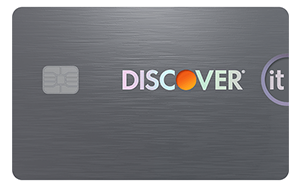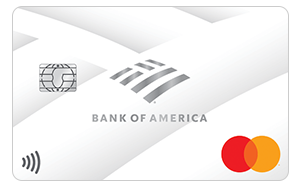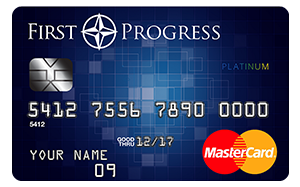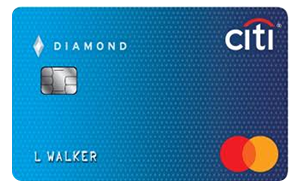Table of Contents
What is length of credit history?
“Length of credit history” (or “credit age”) is one of several factors that determine your credit score. In general, the longer your credit history is, the higher your score will be, because the FICO and VantageScore models reward consumers who have more experience with credit. 1
What is a good length of credit history?
Because FICO and VantageScore keep their scoring algorithms secret, it’s impossible to know what the ideal credit age is. However, consumers with very high FICO scores have an average credit age of 11 years, and those with the maximum possible credit score of 850 have had their oldest account for 30 years on average.2 3
If the length of your credit history is fairly short, you can still get a good credit score by using your credit responsibly and by building your credit with tools like credit-builder loans. However, even if your score is relatively high, some lenders might still deny you a loan if you have an insufficient credit history).
Open your first credit account early
If you don’t have any credit accounts, consider opening one—even if you don’t plan on using it very much. Opening an account early in your life gives you a head start when it comes to establishing your credit history.
How is the length of your credit history calculated?
FICO and VantageScore calculate the length of your credit history based on several factors, including the:
- Average age of your credit accounts (AAoA)
- Age of your oldest credit account 4
FICO has confirmed that it separately considers the ages of your installment loans (e.g., mortgages and car loans) and revolving accounts (e.g., credit cards), so different types of accounts might be more or less important to your score.2
How to calculate the average age of your accounts
Before you can calculate your AAoA, you’ll need to get your credit reports from the three main nationwide credit bureaus (Experian, TransUnion, and Equifax). Your credit report will show all the credit accounts you have and the date you opened them.
To calculate your AAoA, divide the total age of your accounts by the number of accounts you have. For example, if you have three credit accounts at one, five, and ten years old, the average age of your credit is 5.33 years.
You can get one free copy of your credit report every year
You’re normally entitled to one free credit report per year from each of the bureaus (available on AnnualCreditReport.com), but for a limited time due to the COVID-19 pandemic, you can get a free report every week. You can also get six free credit reports every year from Equifax (until 2026) by signing up for a myEquifax account.
How does the length of your credit history affect your credit score?
The length of your credit history has a moderate effect on your credit score in the main scoring models.
Influence on your FICO credit score
Length of credit history makes up just 15% of your FICO score. That makes it the third most important factor, but it’s still just half as important as the second most important (your current balances and debt-to-credit ratio).

Influence on your VantageScore credit score
Length of credit history makes up a similar percentage of your VantageScore. However, in the VantageScore model, length of credit history and credit mix are combined into one factor called “depth of credit.”

How length of credit compares to other scoring factors
Overall, length of credit history is less important than your payment history, which is worth 35% (in FICO’s model) to 41% (in VantageScore’s), as well as your credit utilization rate, which is worth 20% in VantageScore’s model and a similar percentage in FICO’s.
This means that you can largely offset the impact of having a short credit history by paying your bills on time and carrying low balances on your credit cards.
Does closing a credit account hurt your credit age?
Closing a credit account doesn’t usually affect your credit age, but this depends on the scoring model.
FICO continues to factor in closed credit accounts when calculating the length of your credit history until they fall off your credit report, which usually takes 7 to 10 years.5 6
It’s less clear how VantageScore handles closed accounts, as they’ve issued statements about this that seem to conflict with each other.
For instance, in 2020, they wrote that “Closed accounts are still calculated into the age-related metrics of your credit scores, as long as the account is still on your credit reports.”7 However, they’ve also said that “Depending on the type of account and your credit profile, VantageScore may drop the closed account, shortening your overall age of credit.”8
If you’re concerned that closing an account might cause VantageScore to drop it (which will lower your score), it might be better to keep the account open unless it has high annual fees.
Closing a credit account can hurt your credit score for other reasons
If you close one of your credit cards, your credit utilization rate might also shoot up, which can hurt your score. Additionally, you might lose points if you close one of your only revolving or installment accounts, because the scoring models reward a diverse credit mix.
How can you improve the age of your credit history?
There are three main ways to improve the age of your credit history:
- Become an authorized user: Being an authorized user impacts your credit score. When you become an authorized user on someone’s credit card, their lender adds their full account history onto your credit report, increasing your credit age.
- Find a cosigner for a loan: If you’re having trouble getting approved for a loan because your credit history is too short, you can ask someone to cosign it with you. This means that they’ve agreed to pay back the loan if you’re unable to. When you have a cosigner, most lenders will relax their requirements and be more willing to extend loans to you.
- Get a secured credit card: If your credit history is too short to get an unsecured credit card, you can get a secured credit card, which is a type of card that requires a security deposit that your lender will use as collateral. You can use this card to build a positive credit history.
| Credit Card | Best For | Credit Score | Annual Fee | Welcome Bonus | |
|---|---|---|---|---|---|
| Secured Overall | 300–669 | $0 | Cashback Match | ||
| No Credit Check | 300–669 | $35 | |||
| Beginners | 300–669 | $25 | |||
| No Annual Fee | 300–669 | $0 | |||
| Bad Credit | 300–669 | $49 | |||
| Rebuilding Credit | 300–669 | $0 | |||
- Get a credit-builder loan: Credit-builder loans are designed to help people improve their credit scores. They’re not typical loans because you can’t access the funds until after you’ve made all your payments, but they can help establish a good credit history (and a solid credit mix) with minimal risk for you and your lender.
Takeaway: The longer you’ve been using credit, the higher your credit score will be
- The length of your credit history reflects the average age of your accounts and the age of your oldest account.
- Your credit age affects 15% of your FICO score and is one of the major components of the Depth of Credit category in the VantageScore models, which accounts for 20% of your credit score (along with your credit mix).
- A long credit history isn’t necessary to get a decent credit score. However, if your credit history is particularly short, some lenders might reject your application.
- FICO continues to factor closed accounts into your average credit age until they fall off of your credit report. However, it’s unclear whether VantageScore uses closed accounts to calculate your AAoA or not.
- Become an authorized user on a family member or friend’s credit card to add their credit history to your report. Alternatively, you can build your credit by getting a secured credit card or a credit-builder loan, or by getting a cosigner.













